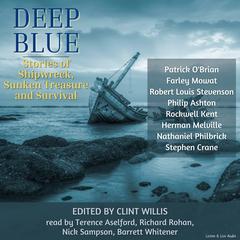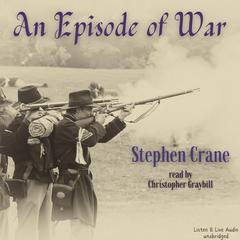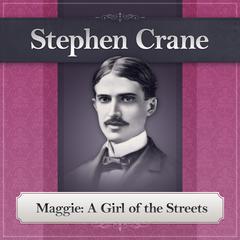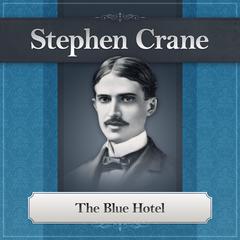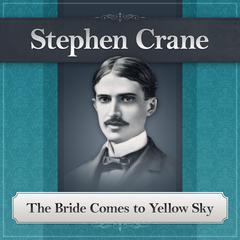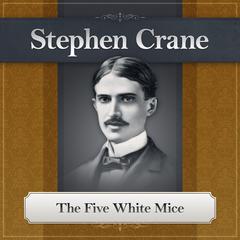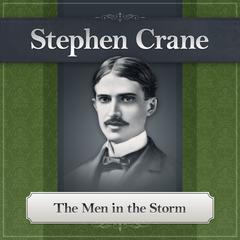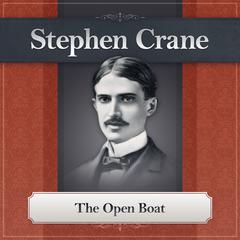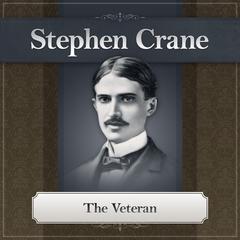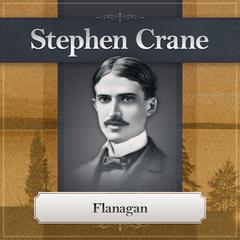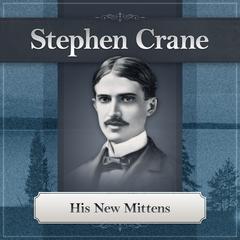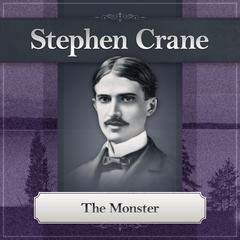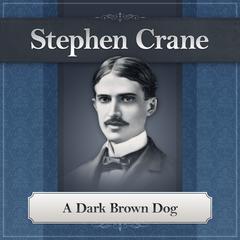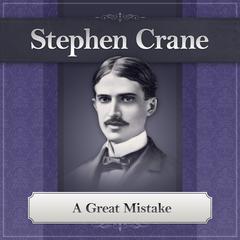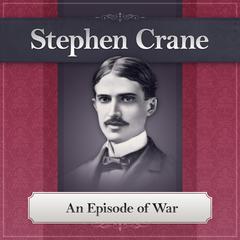 Play Audiobook Sample
Play Audiobook Sample
The Red Badge of Courage Audiobook
 Play Audiobook Sample
Play Audiobook Sample
Quick Stats About this Audiobook
Total Audiobook Chapters:
Longest Chapter Length:
Shortest Chapter Length:
Average Chapter Length:
Audiobooks by this Author:
Publisher Description
Eighteen-year-old Henry Fleming is a private in the Union Army's 304th New York Regiment. Having enlisted despite his mother's protest, Henry internally questions if his bravery will hold true in the face of battle. Determining that all hope is lost during his regiment's first skirmish, Henry flees in the midst of a bleak and bloody situation. However, as he reaches the rear of the army, he learns that the Union has actually won the battle. Overcome with shame, Henry returns to his regiment, hoping that a wound - a 'red badge of courage' - will absolve him of his cowardice.
Download and start listening now!
"An excellent book about the fog and confusion of war as seen through the eyes of a boy who wants to become a man. Very descriptive and interesting. This is a re-read for me, but like other books I read as a teen, it was like reading it for the first time."
— Jake (5 out of 5 stars)
The Red Badge of Courage Listener Reviews
-
" I didn't know what to expect with this book; I appreciated the intro that described the "nameless hero" conceit as it was used here. It's interesting to imagine all different kinds of people in that protagonists role. "
— Sheri, 2/16/2014 -
" Red this in junior high - can't remember too much about it. "
— Rob, 2/14/2014 -
" I enjoyed this book. Amazingly Stephen Crane is said to have had no experence of war himself. He makes the descriptions, both physical and emotional, seem very real. "
— Peter, 2/3/2014 -
" Read along with students. Looking forward to their papers on Monday. "
— Todd, 1/28/2014 -
" It's not bad. Crane deserves credit for looking at some emotional and psychological effects of war. But, his "story" has very little direction and even some of the emotional issues he brings up are not really pushed or explored in the last third of the book. And then of course there is the writing style - very dry, little conversation, and too many big words. In 1895 perhaps this was cool, now, not so much. "
— Jelly, 1/18/2014 -
" "He had been where there was red of blood and black of passion, and he was escaped." The book still evokes a visceral feel for the terror, confusion, and arbitrariness of the battlefield. "
— Tony, 12/23/2013 -
" A book about the details of war written by a man who was never a soldier. And then the ending with the farm - that was just weird. "
— Kyrie, 12/17/2013 -
" I have mixed feelings about this book. The insight into the psychology of a soldier was fantastic, but I wasn't crazy about the main character. I liked the book, but didn't love it. "
— Matt, 12/11/2013 -
" Slow read, but moving and well written. Rings true to war even today "
— Allison, 12/10/2013 -
" Very good book. It is an interesting book about a boy named Henry Fleming and his Civil War experience. If you don't know what to read for school read this one. "
— Taylor, 12/3/2013 -
" A classic short story. I read this as an eBook. The tale follows the psychology of a young soldier's coming of age in the Civil War. "
— Mike, 11/29/2013 -
" this book is trash... Crane was a fool writing about something he knew nothing about. "
— Dustin, 11/25/2013 -
" This is another of those books I should revisit. So many books so little time. "
— Paula, 9/28/2013 -
" Crane's "The Veteran" is a great short story to read after the book. "
— Bryan, 9/26/2013 -
" This was an awesome book about the Civil War and its affect on one young man and how he grew up as a soldier. "
— Dj, 8/13/2013 -
" Don't know which was worse, suffering through it the first time, or having to read it again. Both times for school. "
— Ginny, 7/26/2013 -
" I liked the book but I perfer stories about the World Wars more so then the Civil War, having been in the military and also in the Gulf War, I could relate distantly to some of the emotions or trials the story related to the reader. "
— Patrick, 4/16/2013 -
" Read this in elementary school. I found it to be a bit much. "
— Rainey, 4/9/2013 -
" Made it to page 44. "
— Elise, 1/1/2012 -
" Not sure what all the fuss was about with this book. It basically just shows why herosim isn't all it's cracked up to be. On the plus side, I felt like it showed a side of combat that isn't explored very often. That being the sheer panic and disorientation and how it affects the troops. "
— Shawn, 8/18/2011 -
" Dull, colloquial, whiny, and patriotic: this book is all the things I hate. Needless to say, I hated this book too. The gore at the end was pretty cool though. "
— Hilary, 8/6/2011 -
" Listened to this on a road trip to Missouri. I'd forgotten how descriptive it is. Definitely liked reading it years ago better than listening to it. "
— Kathi, 5/17/2011 -
" There's nothing I can say about this that hasn't been said. The story is just kind of awkwardly put together and the symbolism is too bold. Not my favorite. "
— Allegra, 5/13/2011 -
" I read this back in highschool and I might appreciate it more now, but I remember hating it at the time and hating the main character. However, I think that might have been because it messed with my idealism. So now that I'm more of a realist maybe I should read it again and appreciate it more. "
— Angillham, 5/10/2011 -
" This was an awesome book about the Civil War and its affect on one young man and how he grew up as a soldier. "
— Dj, 5/10/2011 -
" I know it's a classic, but it was hard to follow. "
— Michele, 5/9/2011 -
" Required reading for Civil War or American History buffs. "
— Horton, 5/8/2011 -
" I voted for this book at didn't mean too...oops<br/>This was one of those books I HAD to read in high-school...hated it it... Sorry Mr. Crane...but maybe if I read it again I might like it.... "
— Rebecca, 5/6/2011 -
" This was only just ok (probably more a 2.5). I understand that it was trying to give a young persons real experience of war but i just didn't empathise with the young lad and didn't buy into the atmosphere it was trying to generate. I would not recommend. <br/> "
— Andy, 5/2/2011 -
" "He had been where there was red of blood and black of passion, and he was escaped." The book still evokes a visceral feel for the terror, confusion, and arbitrariness of the battlefield. "
— Tony, 4/26/2011
About Stephen Crane
Stephen Crane (1871–1900) was an American novelist, poet, and journalist. He worked as a reporter of slum life in New York and a highly paid war correspondent for newspaper tycoons William Randolph Hearst and Joseph Pulitzer. He wrote many works of fiction, poems, and accounts of war, all well received but none as acclaimed as his 1895 Civil War novel, The Red Badge of Courage. Today he is considered one of the most innovative American writers of the 1890s and one of the founders of literary realism.
About Chris Lutkin
Chris Lutkin has been in and around the business of acting for more than twenty-five years. A member of Ensemble Studio Theater for twenty years, his proud moments include being directed by Jerry Zaks in a play called Buddy-Pals and working with Horton Foote on his play Lily Dale playing Horace, and putting in more than four hundred off-Broadway performances in a Perfect Crime.







